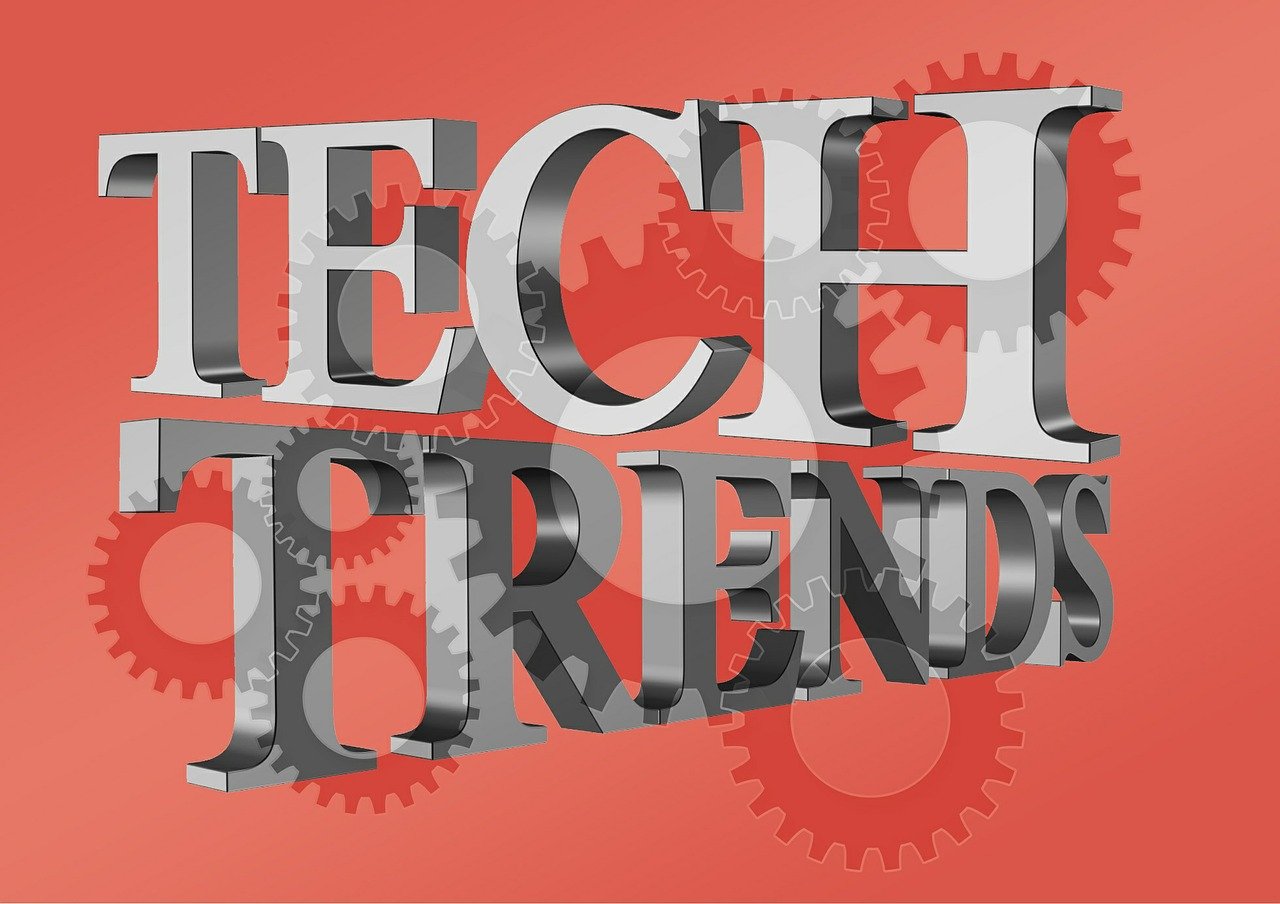In today’s fast-paced digital world, keeping updated with the trends means keeping a finger on the pulse of new technology trends 2025 and beyond. The tech domain is a rapid source of innovation, from creative AI and ML progress to the ability to revolutionize blockchain and IoT. Technological growth continues to shape how we live and work, modifying different industries and zones. Picture a world where self-driving cars roam on bustling streets, virtual reality blurs the lines of reality, and viability meets tech in inspiring ways.
Here, I will explore cutting-edge technological developments, clarify the best tech trends in 2025, and reshape the digital landscape. From generative AI and robotic process automation, and 5G technology, I research into the key innovations driving change as well as shaping the future of digital transformation. Are you ready to explore the tech trends of 2025, which are not just shaping the future? Let’s explore the article.
Top 10 new technology trends in 2025:
The technology trends booming in 2025 are the trends that are driving the world today, and what are they? Explore the list below:
1. Digital Twin Technology
One of the top technology trends for 2025, Digital Twin Technology creates a virtual replica of physical objects, systems, or processes by capturing real-time data via the Internet of Things, triggering regular feedback. This technology intensifies the digital world by allowing predictive maintenance, real-time monitoring, as well as optimized performance. It makes for better decision-making, lifecycle management, and process optimization. Digital twins drive innovation and new business models across various industries, which involves manufacturing, healthcare, and smart cities, by simulating scenarios and improving operational efficiency.
2.Robotic Process Automation:
Robotic Process Automation or RPA, is a life-changing trend in streamlining and automating repetitive tasks in businesses. It involves using software robots or bots to emulate human actions, interact with digital systems, and execute functions across various applications. Robotic process automation significantly reduces manual efforts, enhances accuracy, and accelerates processes in sectors such as finance, human resources, and customer service. This new advanced technology allows organizations to focus on higher-value tasks, improves operational efficiency, and enables seamless integration between legacy systems and modern applications. As the process advances, it becomes integral to digital transformation strategies, offering businesses increased productivity and cost savings.
3. Data Science and Big Data Analytics
Data Science and Big Data Analytics are reshaping industries by harnessing vast amounts of data. Using cutting-edge tools like AI and machine learning, businesses extract crucial insights. This data-driven approach enhances decision-making, boosts efficiency, and fuels innovation across sectors. As organizations increasingly invest in these new emerging technologies, the ability to derive actionable intelligence from data becomes a key driver of success in the modern business world.
4. Human Augmentation
Human augmentation includes enhancing human capabilities by integrating advanced technologies. Evolving from prosthetics that emulate natural limb purposes to brain-computer interfaces that let direct communication between the brain and outside devices, this trend extends beyond physical enhancements to encompass cognitive improvements for memory, attention, and emotional well-being. It holds immense potential to transform healthcare accessibility for individuals with disabilities and even redefine what it means to be human by merging biological and technological advancements.
5. Generative AI
Generative AI, a leading technology trend in 2025, involves models that create new content based on training data like text, images, and audio. It is revolutionizing fields like natural language processing, art, music, and healthcare by enabling human-like text generation of original artworks and accelerating drug discovery.
Generative AI also powers personalized marketing, custom education, and immersive virtual experiences while raising ethical concerns around bias and misinformation. Its applications in automation enhance efficiency across industries, and its development requires interdisciplinary collaboration, making Generative AI a transformative force in technology and innovation.
6. Quantum Computing
Quantum computing, rooted in quantum mechanics, introduces a revolutionary approach to computation. It promises unparalleled computational power by simultaneously utilizing quantum bits (qubits) in multiple states. Advancements in this field are poised to transform industries—from drug discovery to cryptography—by solving complex problems at unprecedented speeds.
7. Edge Computing
Edge computing decentralizes computing and storage closer to data sources like IoT devices. It helps reduce latency for real-time processing in applications such as autonomous vehicles and smart cities. Benefits include enhanced data security, privacy, and cost-effectiveness, although challenges remain in managing distributed networks of edge devices. Nevertheless, it signifies a pivotal shift, enabling efficiency and innovation across industries.
8. Blockchain Technology
Blockchain, a decentralized and secure ledger system, extends beyond cryptocurrencies and finds use in industries like healthcare and finance. Its tamper-resistant nature ensures data integrity and trust among users. Ongoing advancements promise innovations in digital identity, DeFi, NFTs, and sustainability. With scalability improvements, blockchain technology stands poised to revolutionize sectors and drive a more secure, decentralized future.
9. 5G Technology
One of the top technology trends for 2025 is 5G—a transformative force revolutionizing connectivity. Offering unprecedented speeds, remarkably reduced latency, and enhanced network reliability, 5G is reshaping the way we interact with technology. Its deployment across various sectors, such as software development, healthcare, manufacturing, entertainment, and transportation, unlocks new realms of possibility.
As 5G expands worldwide, it opens new frontiers in innovation, blending emerging trends in information technology with everyday digital experiences.
10. Smart Grid Technology
Smart Grid Technology represents a revolutionary shift in how energy is managed and distributed. By integrating IoT, advanced analytics, and renewable energy sources, smart grids optimize electricity distribution, enhance energy efficiency, and support sustainable practices. As one of the emerging technologies for 2025, smart grid solutions are critical to shaping a resilient, eco-friendly infrastructure for the future.
11. AI in Cybersecurity:
AI in cybersecurity is one of the top 10 technology trends, cybersecurity. It is rapidly evolving with proactive measures like AI-driven solutions and zero-trust architecture. AI enhances threat detection, while zero-trust models enforce strict access controls. Biometric authentication adds another layer of security, minimizing unauthorized access. This trend underscores a shift toward preemptive strategies and multi-layered defenses to safeguard data and systems.
12. Wearable Technology
Wearable Technology continues to evolve beyond simple fitness trackers. Integrating advanced sensors, AI, and connectivity, modern wearables monitor health metrics, provide real-time feedback, and even enable augmented reality experiences. As part of the top new technologies, these devices are transforming personal healthcare and everyday convenience, aligning with the broader scope of the latest technology trends.
FAQ:
Q1. What is a technological trend?
Ans: A technological trend refers to the prevailing direction in which new and innovative technologies are developing and being adopted. These trends indicate advancements gaining momentum and shaping various aspects of society, industry, and daily life.
Q.2. What is the next booming technology?
Ans: The next booming technology will likely be artificial intelligence & Gen AI, particularly advancements in machine learning and neural networks, expected to drive significant innovation and efficiency across various sectors.
Q.3. Which technology is best for the future?
Ans: The best technology for the future is subjective and depends on the context. However, AI, renewable energy technologies, quantum computing, and biotechnology are often highlighted as having the potential to impact and benefit society profoundly.
Conclusion:
The fast-paced evolution of technology is not just a wave; it’s a relentless tide reshaping the landscape of our digital future. Embracing the top technology trends in 2025 isn’t merely an option; it’s necessary for those seeking to ride the currents of innovation. From the transformative power of artificial intelligence to the interconnected promise of the Internet of Things, these tech trends in 2025 are not just glimpses into tomorrow, they are the building blocks of a revolution today.
As we navigate this dynamic sea of possibilities, staying informed and adaptable becomes our compass, guiding us toward a future where technology isn’t just a tool but a seamless extension of our boundless human potential. The future is now, and it’s waiting for those bold enough to grip the ever-changing tide of technological progress.

